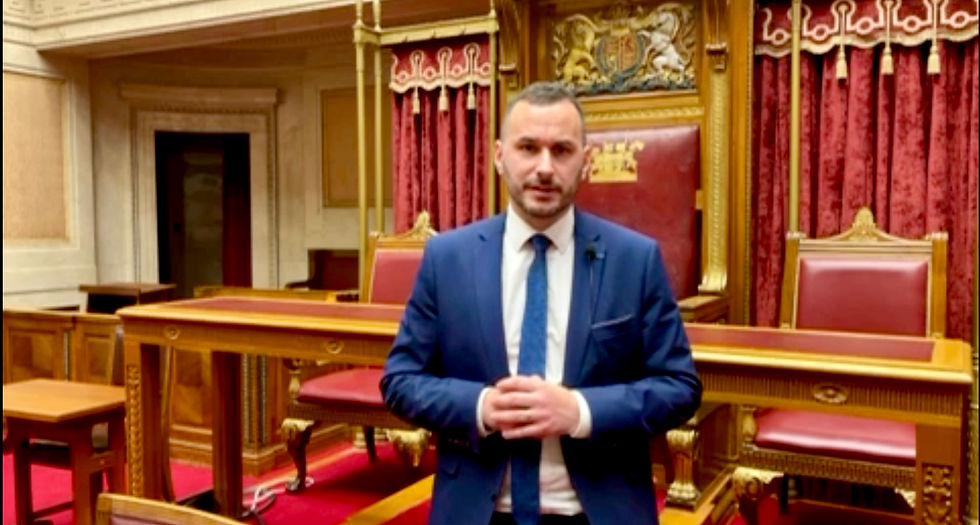TUV MLA Timothy Gaston warns of widening division in immigration debate
- Love Ballymena

- Jun 9, 2025
- 2 min read

TUV North Antrim MLA Timothy Gaston speaking this afternoon in a video statement. Video below.
TUV North Antrim MLA Timothy Gaston has delivered a stark warning to Stormont, highlighting growing frustration within working-class communities across Northern Ireland over the impact of immigration, warning that the debate is being conducted without respect for the people most affected.
Speaking in the wake of recent events in Ballymena, Mr Gaston expressed what he described as a rising and “unmistakable sense of frustration — and yes, anger” among ordinary people.
“They feel forgotten. Overlooked. Spoken down to,” he said, stressing that the issue is not rooted in prejudice but in “community, cohesion, and respect for the values and traditions of the people who built these neighbourhoods.”
While acknowledging that immigration policy itself is not devolved, the TUV MLA argued that its consequences — particularly pressures on public services — are very much a devolved matter.
“When GP surgeries are overwhelmed. When classroom assistants are stretched to breaking point trying to meet translation needs. When local housing lists grow longer while pressures mount on our health service,” Mr Gaston said, “we cannot simply shrug our shoulders and say, ‘That’s a Westminster matter.’”
The North Antrim representative pointed to spending on translation services as an example of a system under strain, revealing that over £4 million is spent annually in Northern Ireland’s health service to facilitate translation services.
“The Executive Office has a role to play here,” he continued. “It administers schemes for refugee and asylum seeker integration. That policy is failing.”
Mr Gaston’s remarks come amid heightened tensions in Ballymena, where recent events have brought renewed focus on issues of integration and community safety.
“The people who feel it most are not the ones in leafy suburbs or BBC studios,” he stated. “It is the working-class communities — Protestant and Catholic alike — who live beside the hostels, share the school buildings, and wait in the same hospital queues.”
“They were never asked whether they wanted these changes. They were simply told it was happening.”
The TUV MLA warned that ignoring the concerns of local people, or dismissing them as bigoted, risked deepening societal divisions.
“When a community feels it is being changed against its will. When voices of concern are dismissed as ignorant or bigoted. That is a recipe for division, not diversity,” he said.
He concluded his statement with a call for leadership, respect, and recognition for those who feel increasingly voiceless.
“It is not bigoted to say that our culture — our identity — matters too. It’s also time for respect when it comes to this issue. Respect for the communities who built this province, who pay their taxes, and who are now asking whether anyone is still listening.”
As political and community leaders reflect on the rising tensions, Mr Gaston’s intervention adds to a broader debate over the balance between diversity, integration, and local community voice — particularly in areas where resources are already under strain.








